The Trainers’ Training for Integrating the School-plus-Home Gardens cum Biodiversity Enhancement Enterprise (SHGBEE) in ATPs and Mini-ATPs in Cambodia held its Session 5 on 19 January 2022, via the platform Zoom. This is an ongoing collaborative training program organized by the Southeast Asian Regional Center for Graduate Study and Research in Agriculture (SEARCA) and the Center of Excellence on Sustainable Agricultural Intensification and Nutrition (CE SAIN), in partnership with the Kansas State University (KSU) and the University of the Philippines Los Banos (UPLB).
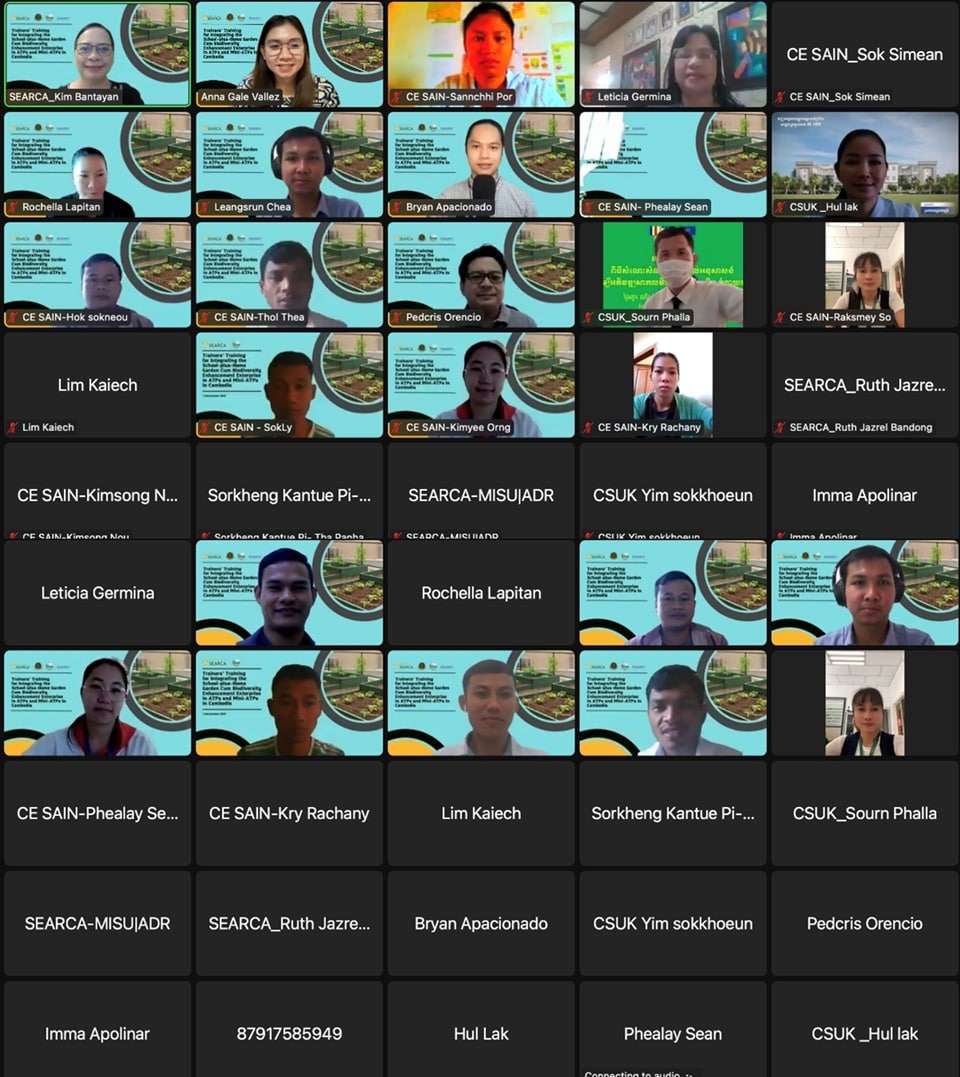 Participants and organizers of Session 5.
Participants and organizers of Session 5.
Professor Bryan V. Apacionado, Associate Professor from the Institute of Crop Science, UPLB led the session with the topic Edible Landscaping and School Garden Planning. His lecture revolved around the history, goals, components, phases, and types of edible landscaping (EL). Prof. Apacionado defined edible landscaping as an innovative and creative crop production technology. He described it as a combination of science (crop production services) and art (elements and principles of design). He also underscored that unlike conventional landscaping which uses ornamental plants, edible landscaping yields vegetables, fruits, medicinal plants, and herbs.
This was followed by the presentation on actual experiences of establishing an edible landscape and school garden shared by Ms. Leticia D. Germina, Principal of Banca-banca Integrated National High School in Victoria, Laguna, Philippines. She is a former partner of the SEARCA-implemented project on School-plus-Home Gardens. In her presentation, she highlighted their experiences on EL and school gardening along with the challenges that came with it. She also cited the involvement of one of her colleagues on establishing her own edible garden at home during the new normal.
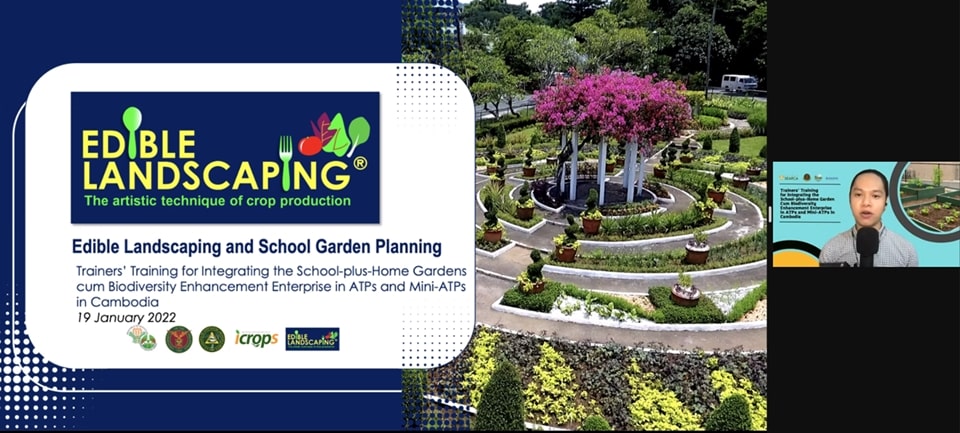 Prof. Bryan V. Apacionado delivering his lecture.
Prof. Bryan V. Apacionado delivering his lecture.
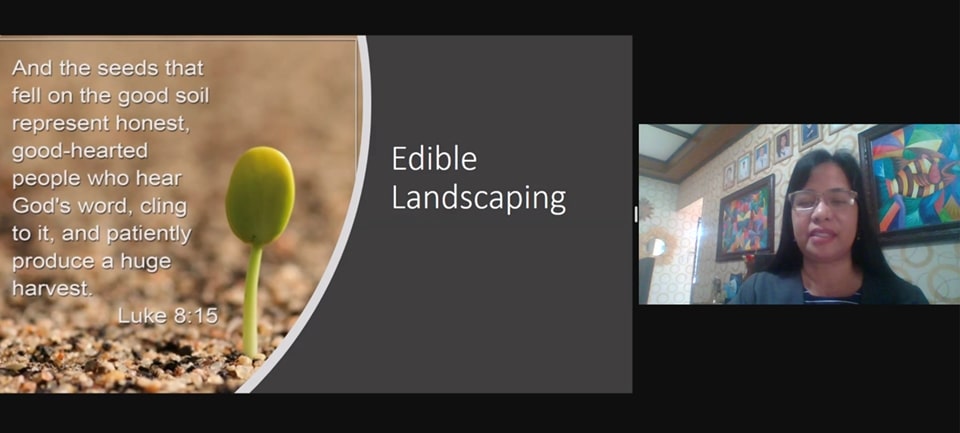 Ms. Leticia D. Germina sharing their experiences on edible landscaping.
Ms. Leticia D. Germina sharing their experiences on edible landscaping.
After the lecture and open forum, the trainees grouped themselves by school to do the workshop activity. The activity tasked them to identify an area in their respective schools that they want to develop for an edible landscaping garden and draw them manually in a paper or using an online application incorporating what they have learned during the lecture. The participants then presented their outputs during the main session explaining the concepts, elements of design, and principles of their edible landscape.
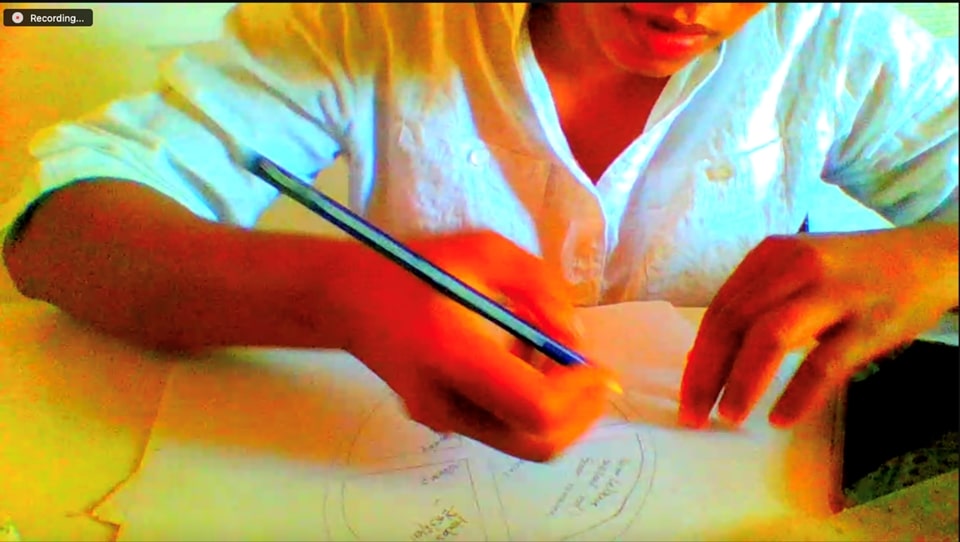 One of the participants drawing their planned edible landscape.
One of the participants drawing their planned edible landscape.
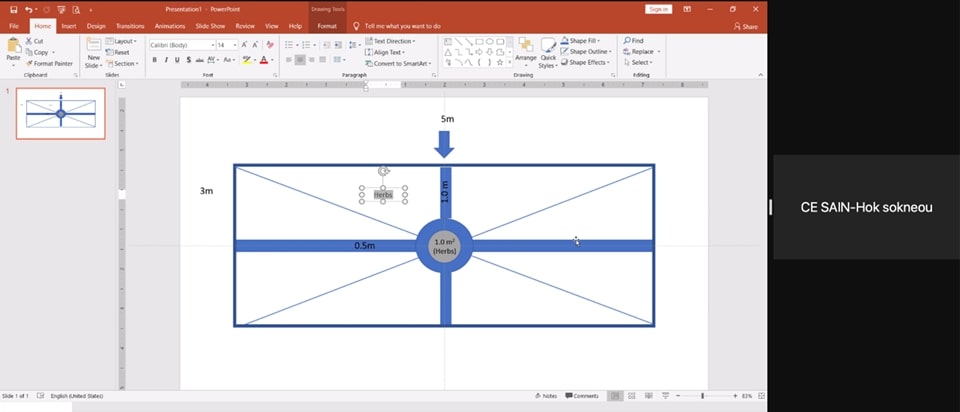 A participant presenting their output.
A participant presenting their output.
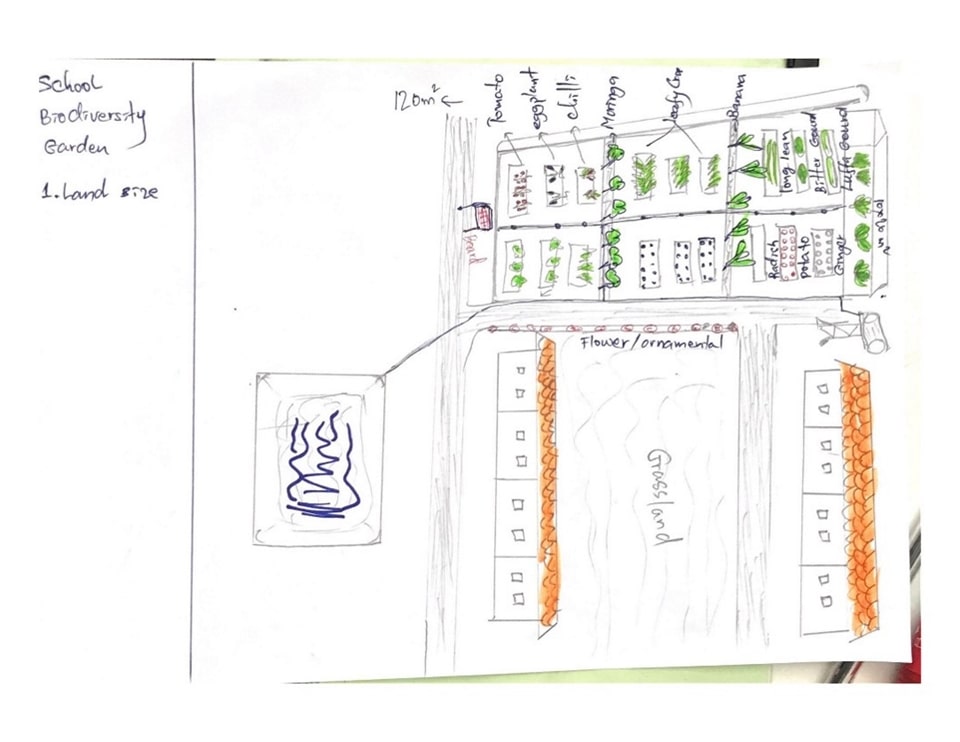 Output of one of the participating schools.
Output of one of the participating schools.
Pre-session and post-session self-evaluation tests were administered in the beginning and at the end of the training, respectively, to measure the knowledge gained by the participants. Further, the session concluded with a discussion of reflection and synthesis led by Dr. Blesilda M. Calub, University Researcher from the Agricultural Systems Institute, UPLB. She presented the participants’ thoughts on specific techniques from the module that shall help encourage students to enjoy gardening, the challenges that would prevent students from adopting those techniques, and strategies to overcome the identified challenges.